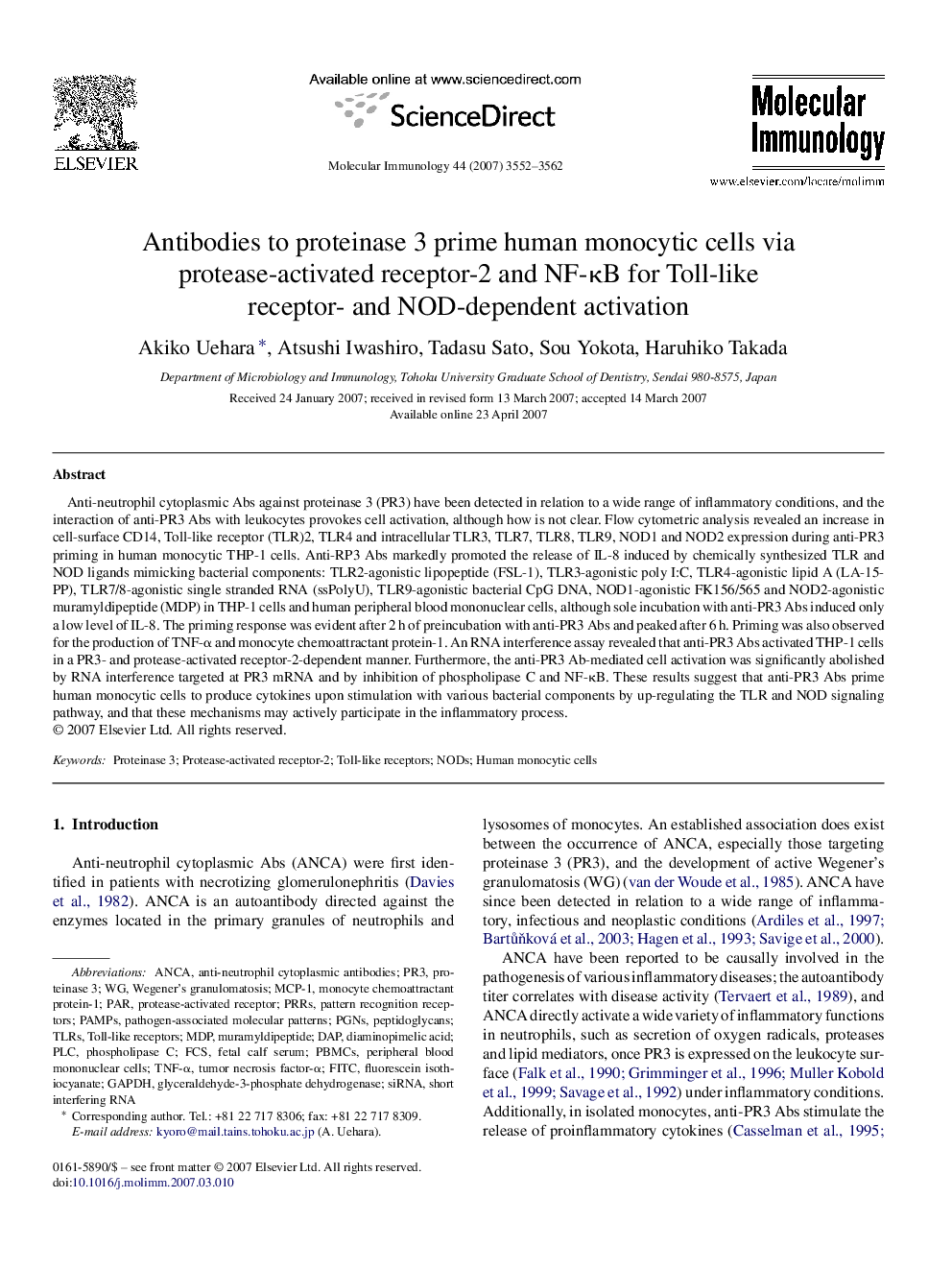| کد مقاله | کد نشریه | سال انتشار | مقاله انگلیسی | نسخه تمام متن |
|---|---|---|---|---|
| 2833190 | 1163860 | 2007 | 11 صفحه PDF | دانلود رایگان |

Anti-neutrophil cytoplasmic Abs against proteinase 3 (PR3) have been detected in relation to a wide range of inflammatory conditions, and the interaction of anti-PR3 Abs with leukocytes provokes cell activation, although how is not clear. Flow cytometric analysis revealed an increase in cell-surface CD14, Toll-like receptor (TLR)2, TLR4 and intracellular TLR3, TLR7, TLR8, TLR9, NOD1 and NOD2 expression during anti-PR3 priming in human monocytic THP-1 cells. Anti-RP3 Abs markedly promoted the release of IL-8 induced by chemically synthesized TLR and NOD ligands mimicking bacterial components: TLR2-agonistic lipopeptide (FSL-1), TLR3-agonistic poly I:C, TLR4-agonistic lipid A (LA-15-PP), TLR7/8-agonistic single stranded RNA (ssPolyU), TLR9-agonistic bacterial CpG DNA, NOD1-agonistic FK156/565 and NOD2-agonistic muramyldipeptide (MDP) in THP-1 cells and human peripheral blood mononuclear cells, although sole incubation with anti-PR3 Abs induced only a low level of IL-8. The priming response was evident after 2 h of preincubation with anti-PR3 Abs and peaked after 6 h. Priming was also observed for the production of TNF-α and monocyte chemoattractant protein-1. An RNA interference assay revealed that anti-PR3 Abs activated THP-1 cells in a PR3- and protease-activated receptor-2-dependent manner. Furthermore, the anti-PR3 Ab-mediated cell activation was significantly abolished by RNA interference targeted at PR3 mRNA and by inhibition of phospholipase C and NF-κB. These results suggest that anti-PR3 Abs prime human monocytic cells to produce cytokines upon stimulation with various bacterial components by up-regulating the TLR and NOD signaling pathway, and that these mechanisms may actively participate in the inflammatory process.
Journal: Molecular Immunology - Volume 44, Issue 14, July 2007, Pages 3552–3562